Original Title: Huracán Ramírez
Year: 1952
Director: Joselito Rodríguez
Writer: Joselito Rodríguez, Juan Rodríguez Mas, Jesús Saucedo
IMDB: http://www.imdb.com/title/tt0044728/
Genre: Lucha/Drama
synopsis:
Lounge Singer Leads A Colorful Double Life In The Ring
As I said in my intro, I'm not entirely sure of the plot of this film as I had no subtitles. I was watching it more for the structure and elements and to really see where the lucha genre came from.
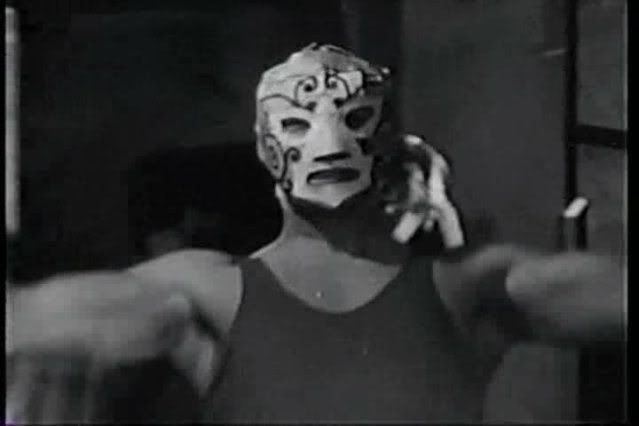
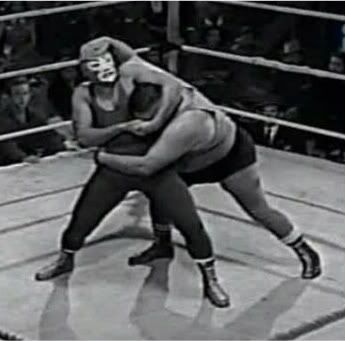
From a review on IMDB, it seems that Fernando (David Silva) is the son of an older wrestler, Tonina Jackson, and a night club singer. His father does not want him to follow in his footsteps and become a luchador as well, but apparently it is Fernando's true passion so he moonlights as Huracan Ramirez. Huracan refuses to fight Tonina, which constantly frustrates Tonina and the audience evidently as Huracan is constantly pelted with garbage after and sometimes before his matches.
When they finally do meet, Tonina is impressed with Huracan's skills and they team up.
There are a couple subplots in there concerning Tonina's teenage daughter who wants to dress like a slut and has a crush on Huracan Ramirez (obviously not knowing his true identity as well), and also one I could not figure out at all with some sort of criminal element with Fernando's girlfriend, a dancer at the club, and a couple other rudos (bad guy wrestlers - one of which is El Medico Asesino who was in the other film I am reviewing today!)

The main plot would have been more interesting to me I think if I had been able to know all the intricacies on my own, but the subplots are rather annoying. There is the taste of crime fighting toward the end of the film, which really seems like a hint of what is to come later.
Where characters in this film are constantly trying to figure out the identity of Huracan, in later lucha films, this theme is given up entirely as they eventually seem to just be a normal part of society. I definitely like this latter development more than the whole mystery identity thing.
The acting is hammy 50s style all around, with bad dubbing on songs and people performing as if they were on stage as opposed to in front of the camera. My favorite character oddly was the adorable youngest daughter of Tonina. She seemed to have a funny relationship with her father and definitely seemed very bright.
Where David Silva played the parts of Fernando, the in-ring Huracan under the mask was played by Eduardo Bonada. Huracan was not a real professional wrestler, but instead a written character for this film. That is another thing that sets this apart from later lucha stories. Actually, Huracan Ramirez became a real-life professional wrestler after the release of this film. Bonada wrestled as Huracan for about 8 years after, until he tired of it, then Daniel García, a producer on this film, took over the character and wrestled professionally for years after. He became close friends with Santo and Blue Demon, wrestling with them often, and was a pall bearer at Santo's funeral in the 1980s.

Huracan Ramirez is credited with the innovation of the wrestling maneuver the hurracanrana, a headscissors takedown that ends in a pinning hold, and is still used frequently by wrestlers today.
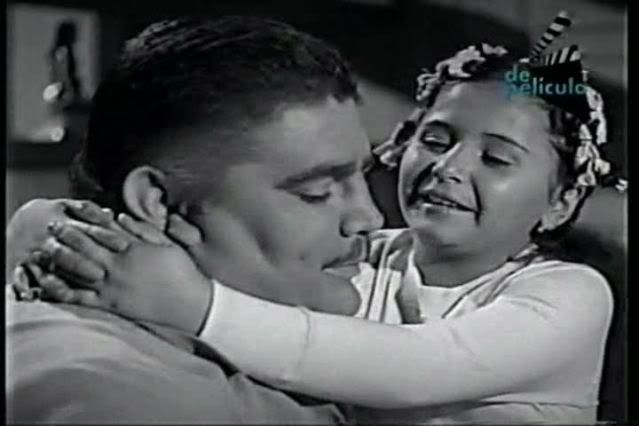
The film itself was not creatively or interestingly told either. Director Joselito Rodriguez simply gives us a straightforward telling of this story. While it is interesting to see how professional wrestling broke into Mexican cinema, there are certainly better shot and better told stories that would come along later on.
Granted, I saw this with no subtitles and a pretty limited Spanish vocabulary of my own, but Huracan Ramirez is really only worth a view if you want to see a genre developed from very early on. It brings nothing new to the table except for professional masked wrestlers being the center of an on-screen story.
Recommended for history-sake. Not recommended otherwise.
While I am very glad I have seen it, I really don't have an interest in seeing it again.
Score: 4.75 / 10
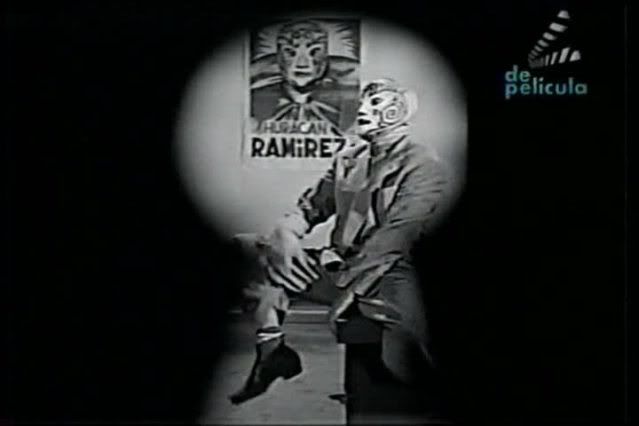

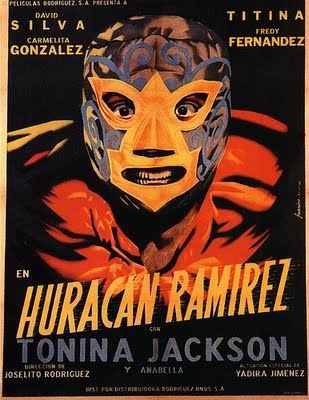
No comments:
Post a Comment